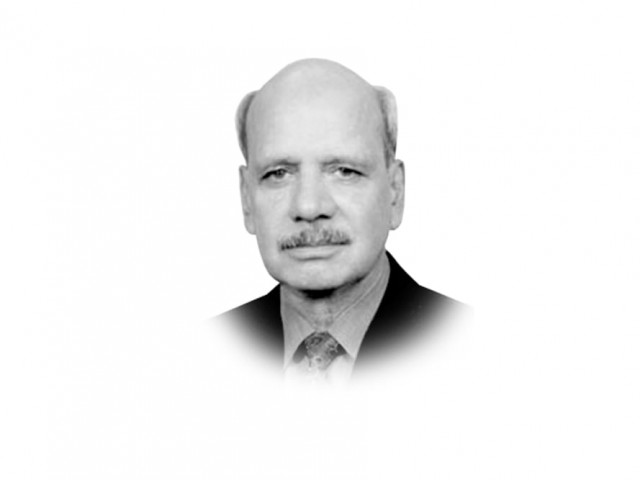The invisible soldiers of Islam
We have been too depressed to notice a piece of good news. Our ISI was ranked the world’s top intelligence agency.

The invisible soldiers of Islam
Only the other day the agency was complimented, even though back-handedly, to have helped a rag-tag militia in Afghanistan, frustrate the world’s mightiest military alliance, Nato. Calls for a double celebration, I suppose!
After the Soviets left Afghanistan, the US, our partner during the occupation, had a change of heart. Since we had “misused” our frontline status to upgrade our nukes, we had to be punished for this impertinence. Invoking Pressler (Amendment) should normally have sufficed; except for a problem. The ISI having played the lead role during the Afghan resistance — helped no doubt from some of the best in the business — was now raring to join the big league. An efficient secret service of suspect loyalty can become a pain in the neck. When General Brent Scowcroft, a former US national security adviser, publicly acknowledged that the ISI’s assessment of Iraqi forces in Kuwait was better than theirs, it was time for the upstart to be cut to size.
Before it is killed, a dog is given a bad name, and the ISI was hence labelled a rogue organisation. In Afghanistan it was no longer helping a national resistance but “building-up a client regime”; if some religious literature found its way to the newly independent Central Asian Republics, it must be the ISI “exporting regressive ideologies”; and its support to the uprising in Indian-held Kashmir was but “state-sponsored terrorism”. And the baggage that the ISI carried because of its involvement in domestic politics — an upshot of the military’s role in Pakistan — made all this easier for
our detractors.
If the outfit withstood the onslaught and is again lauded as the best of its kind, it must have done something good. However, there is another reason that the ISI must be wooed, once more: it is America’s best bet to clinch a face-saving deal in Afghanistan. I have no idea what our super spooks have done to earn this recognition, but if there was any reality in the perception that the ISI has kept the Taliban in good shape against all odds, then at least in my reckoning it has done us all a big service. Without an effective resistance, the occupation of Afghanistan is not likely to be vacated. And unless that happened, our western borders would remain on the boil.
Intelligence agencies are not a panacea for all ills. They can at best ward off immediate threats and provide space for other organs of the state to find long-term remedies. Admittedly, it is the harder part and ours counts amongst the softer states. It would rather abdicate its duty to the ISI and then call it “a state within a state”, or do worse: bring an external intelligence agency under command of the interior ministry and send its spymaster abroad to face criminal charges.
How to deal with this “mother of all threats” is a different matter. For now, the ISI has other battles at hand, and would do well fighting them one at a time.
Lt-Gen(r) Asad Durrani
Published in The Express Tribune, August 27th, 2010.















COMMENTS
Comments are moderated and generally will be posted if they are on-topic and not abusive.
For more information, please see our Comments FAQ